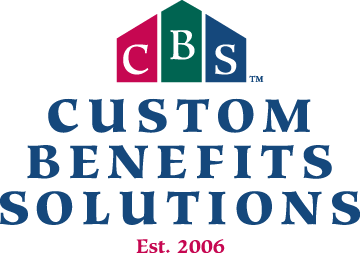Tax Reform: What It Means for Employee Benefit Plans
December 18th, 2017
Late Friday, the public got its first look at the Tax Cuts and Jobs Act. The 500-plus page bill is the product of separate House and Senate bills that were reconciled in conference. Congressional Republicans appear to have sufficient votes to pass the reconciled bill in both chambers and deliver it to President Trump’s desk this week.
If signed into law, the bill will make significant changes in the Internal Revenue Code with respect to corporations, businesses, and individuals. There also are a small number of provisions that will affect employee benefit plans. This article outlines the items of particular interest to employers that sponsor health and welfare benefits or retirement and savings plans.
Health and Welfare Benefits
Group health benefits, often considered the primary and most valuable benefit provided by employers, are not affected by the bill. Requirements that were added several years ago by the Affordable Care Act (ACA), including the so-called employer mandate and employer reporting requirements, will continue to apply. There also are no changes with respect to health flexible spending accounts (HFSAs), health reimbursement arrangements (HRAs), or health savings accounts (HSAs).
Current tax laws for group life and accident insurance and short- and long-term disability benefits also continue unchanged.
The original House bill would have affected the preferred tax treatment of adoption assistance benefits and educational assistance plans. The final bill, however, preserves the current treatment.
Dependent care assistance plans, including dependent FSAs, also escaped changes in the final bill. For individual income tax purposes, the federal child care tax credit will be expanded somewhat, so some employees will want to take another look at whether their employer’s FSA, or the federal credit, will offer the greater benefit.
Qualified transportation benefits, often referred to as commuter benefits, are affected by the new bill. For tax years 2018 through 2025, the bill repeals current law that allows employees to exclude bicycle commuting expenses from their gross income. Employees will continue to be able to exclude qualified parking and transit benefits from their income, but employers will lose the ability to deduct their costs for these benefits.
Retirement and Savings Programs
While early House proposals targeted retirement plan contribution limits, employer-sponsored retirement plans were generally unscathed in conference. Therefore, in 2018 employee contributions to 401(k), 403(b), most 457 plans, and the federal government’s Thrift Savings Plan remain capped at $18,500 ($24,500 for those age 50 or older). Roth and Traditional IRA limits in 2018 are capped at $5,500 ($6,500 for those age 50 or older).
The most notable change for tax favored employer-sponsored retirement plans relates to loan offsets. Under current law, if an employee receives a loan from the retirement plan and either the plan terminates or the employee terminates employment, then the employee’s obligation to repay the loan is accelerated and the employee must either repay the outstanding balance on the loan or roll the outstanding balance into another eligible retirement plan within 60 days to avoid tax liability for loan offset.
Under the bill, if the plan terminates or an employee fails to meet the repayment terms of the loan because they sever employment, then time period within which a loan offset can be rolled over tax-free to another eligible retirement plan is extended from 60 days to the employee’s due date (including extensions) for filing federal income taxes for the tax year in which the plan loan offset occurs. This provision takes effect for plan loan offset amounts treated as distributed in taxable years beginning after December 31, 2017.
Additionally, the tax plan provides more relief for employees impacted by natural disasters occurring in the 2016 or 2017 tax years. The natural disaster had to occur in an area declared as a disaster area by the president and the casualty damage (exceeding $500) must have resulted from that disaster. In such cases, employees who received a distribution from their eligible retirement plan (including a 401(k) plan, 457(b) plan or an IRA) may recontribute the funds to an eligible retirement plan to which a rollover can be made within three years after the date on which the distribution was received to avoid the money being included as income.
For this to apply to employees, employers will need to make retroactive plan amendments on or before the last day of the first plan year beginning after December 31, 2018 (December 31, 2020 for governmental plans) or a later date prescribed by the Secretary of the Treasury. The amendment is retroactively effective if it applies retroactively for the applicable period and the plan is operated in accordance with the amendment during that period. Therefore, amendments should reflect their operations during that time period. Employers are encouraged to work with employee benefits counsel to address any retroactive plan amendments.
Summary
Although early versions of tax reform bills would have affected several types of employee benefits, the final bill makes very few changes and those changes are fairly modest. Employers and their advisors will want to pay particular attention to issues affecting commuter benefits, loan provisions under 401(k) and similar plans, and tax relief for retirement/savings plan participants who were impacted by natural disasters in the past two years.
Originally published by www.thinkhr.com

